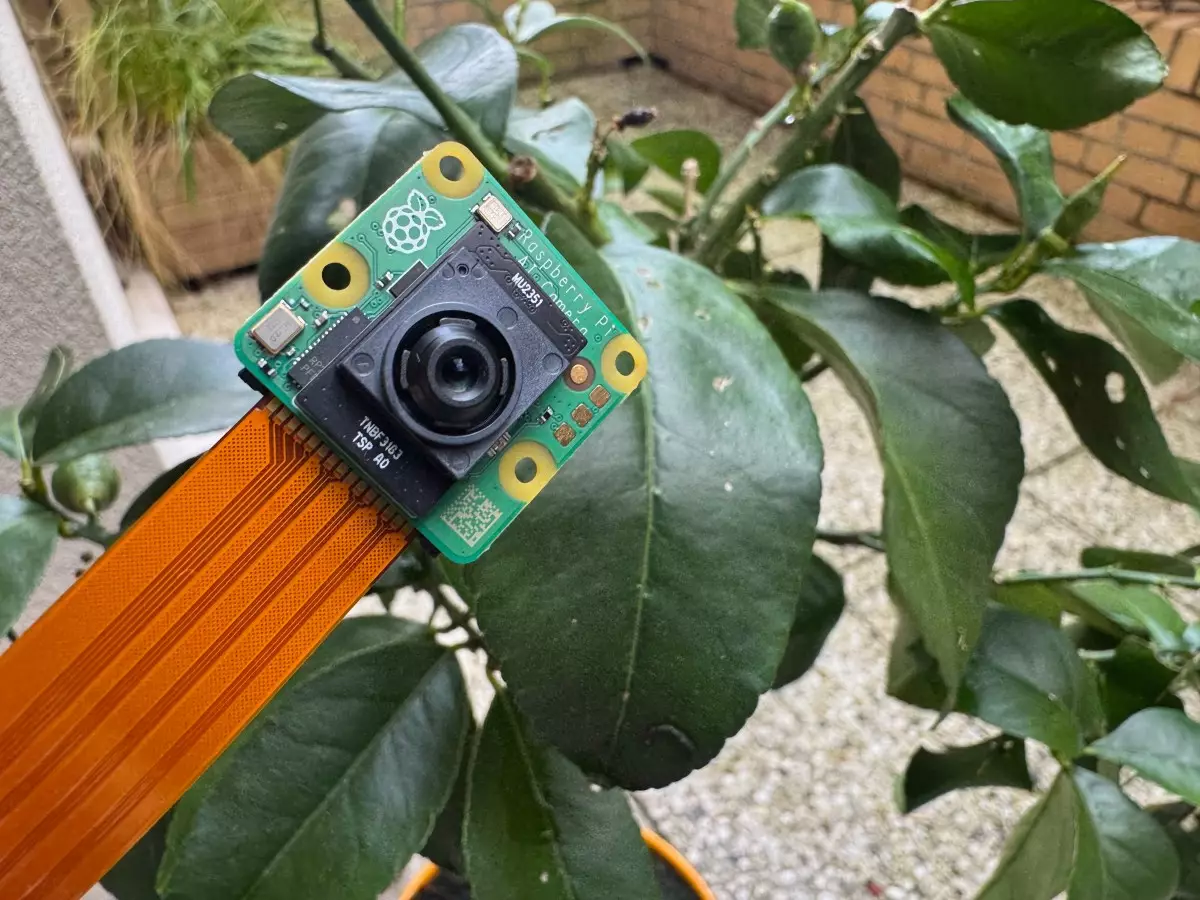The digital landscape is undergoing a profound transformation fueled by innovation and accessibility. Among the forefront players in this revolution is Raspberry Pi, renowned for its small-scale, budget-friendly single-board computers. With their latest iteration, the Raspberry Pi AI Camera, the company is poised to significantly enhance both functionality and versatility in various applications, all while integrating artificial intelligence into its offerings.
The Raspberry Pi AI Camera is not just another peripheral; it represents a leap forward in how visual data can be captured and processed. Priced at an accessible $70, this compact device utilizes a Sony IMX500 image sensor coupled with the Raspberry Pi’s proprietary RP2040 microcontroller. This synergy not only retains the affordability that Raspberry Pi is known for, but it also introduces onboard AI processing capabilities, enabling real-time image handling without overwhelming the primary Raspberry Pi unit.
While the RP2040 chip may lack the raw power of traditional graphics processing units, it thrives in scenarios requiring modest computational demands. This practical engagement with AI means that, although large-scale AI ventures won’t be replacing Nvidia GPU setups with RP2040, hobbyists and small businesses can now explore projects involving smart features and real-time visual recognition.
At a glance, the AI Camera mirrors the dimensions of the existing Raspberry Pi Camera Module 3, measuring 25mm x 24mm. However, its slightly increased thickness highlights the enhanced optical sensor functionality. Equipped with the MobileNet-SSD model pre-loaded, the camera is primed for immediate application in object detection tasks, seamlessly processing images as they are captured.
This pre-integration allows users to bypass the often complex processes associated with setting up machine learning models from scratch. For small companies or individual developers eager to dive into AI without extensive technical barriers, the AI Camera’s design is an enticing solution that balances ease of use with innovative capacity.
Historically, Raspberry Pi products were synonymous with tech enthusiasts creating DIY projects or educational tools. However, the current market reflects a significant pivot towards industrial applications, with 72% of Raspberry Pi’s sales now originating from embedded and industrial segments. The AI Camera is expected to amplify this trend further.
Imagine urban planners utilizing multiple AI Cameras integrated into smart city applications to monitor and manage infrastructure efficiently. These cameras could facilitate traffic flow analysis or assist in identifying available parking spaces, thus contributing to a more streamlined urban experience. In manufacturing, the AI Camera can bolster automated quality assurance processes, enabling real-time monitoring of production lines.
One of the paramount advantages of Raspberry Pi products is their scalability and consistent availability. The company’s commitment to maintaining the production of the AI Camera until at least January 2028 assures businesses that they can incorporate this technology into their operations without fear of supply chain disruptions. This reliability is especially crucial in a post-COVID context, where many companies are nurturing their production pipelines.
As industries continue to leverage technology for efficiency, the Raspberry Pi AI Camera stands as a pivotal innovation poised to enhance operational capabilities across various sectors. Whether for an ambitious home project or an extensive industrial application, this add-on is set to redefine the functionalities of compact computing systems.
The Raspberry Pi AI Camera marks a significant milestone for the company, demonstrating its ability to blend affordability with sophisticated technology. As artificial intelligence becomes increasingly integral to machine operations, the AI Camera not only caters to the needs of today’s developers and businesses but also paves the way for future innovations. With its affordable price point and advanced features, the AI Camera is bound to shape the use cases of Raspberry Pi devices around the world, solidifying its status in the emerging landscape of embedded AI technology.

